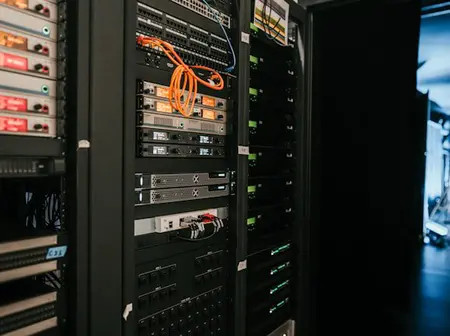Uganda is preparing to host Africa’s first dedicated Artificial Intelligence (AI) factory. The Aeonian Project, a 100MW hyperscale facility inside the 600MW Karuma Hydropower Plant on the River Nile, will redefine how African data is processed and applied.
Most African data today is handled abroad, leaving the continent dependent on foreign infrastructure. The Aeonian Project aims to change that. At its core is USIO, a 10MW sovereign supercomputer built with NVIDIA, Belgian automation firm Automation NV, and AI infrastructure company MDCS.AI. Powered by excess electricity from Karuma, USIO will support large-scale AI research and applications across healthcare, education, and life sciences.
The facility is designed for efficiency and sustainability. It will use river water for cooling, modular heat reuse, and intelligent energy management. A 2,500km fiber optic network will connect Uganda to international cables through Kenya and Tanzania, ensuring fast, secure data flow.
“This project gives Africa control over its own digital backbone,” said Oladele Oyekunle, CEO of Synectics Technologies. By processing data locally, African researchers can build AI models in local languages and tailor solutions to regional needs.
The rollout begins in 2026 with a 15MW AI module and the USIO supercomputer. The remaining five modules will be completed by 2028, bringing the facility to full capacity.
Niels Van Rees, co-founder of MDCS.AI, compared the potential impact to Africa’s natural resources. “Data and AI will define economic opportunities in the coming decades. This facility positions Africa to lead in innovation rather than follow.”
Ifeanyi Odoh, Schneider Electric East Africa’s country president, added, “Combining renewable energy with smart infrastructure ensures operations are secure, efficient, and responsible.”
For decades, Africa has relied on foreign data centers. The Aeonian Project flips that model, keeping computing power local and giving African innovators the tools to build AI for Africa’s needs.
Uganda’s efforts are part of a broader regional wave of investment in AI and digital infrastructure. Just across the border, Airtel Kenya recently broke ground on East Africa’s largest data center at Tatu City, Nairobi. The $150 million facility, designed for cloud computing, AI workloads, and enterprise-scale services, is planned with a 44MW power capacity across two phases and high-density, GPU-ready racks. Engineers target a PUE of less than 1.4 and 99.999% uptime, signaling resilience for critical workloads.
“This is a long-term investment in Kenya’s digital future,” said Airtel Kenya MD Ashish Malhotra. “It strengthens data sovereignty, attracts global tech players, and positions Kenya as a regional hub for technology and innovation.”
The Airtel facility complements Uganda’s Aeonian Project, highlighting how East Africa is emerging as a critical center for data, AI, and cloud capabilities. Both initiatives reflect the region’s ambition to host, rather than just consume, global technology services.
TechTrends Media is also helping to shape the conversation around AI and digital transformation. The upcoming TechTrends Innovation Awards 2025 at the AI-Powered Business Transformation Forum in Nairobi will bring together innovators, business leaders, and policymakers to explore how AI is reshaping industries across Africa. The event underscores the growing recognition that infrastructure alone isn’t enough—talent, collaboration, and policy frameworks must evolve alongside it.
With these projects, East Africa is creating a new digital ecosystem: sustainable, high-powered, and homegrown. Uganda’s AI factory and Kenya’s Nxtra data center are signals that the continent is not only ready to host mission-critical services but also poised to lead innovation on its own terms.

Leave a Reply